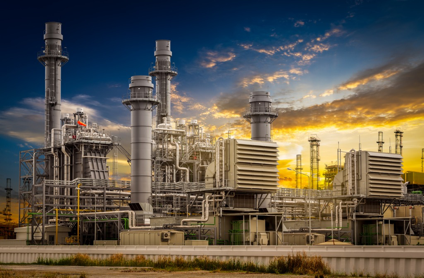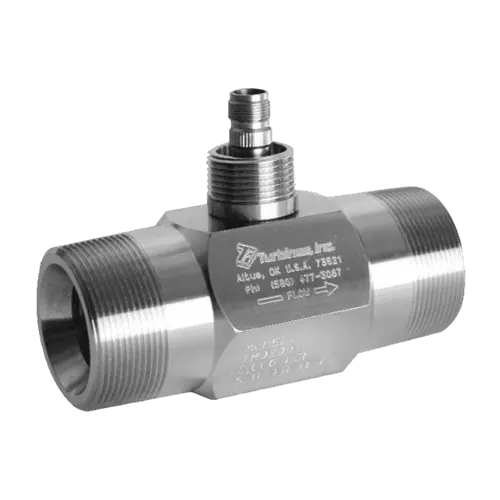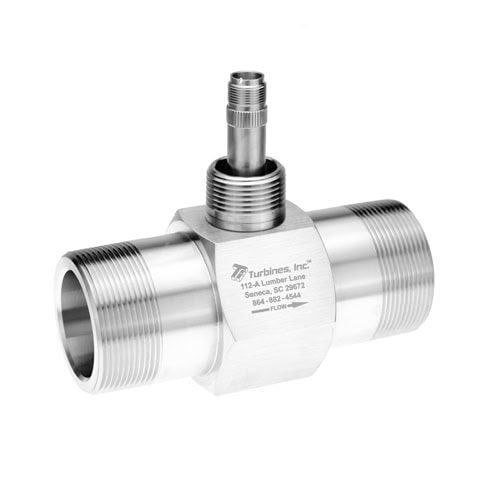Turbines, Inc. manufactures flow meters designed for temperatures up to 850°F. High-Temperature flow meters are engineered to safely and accurately measure liquids and gasses in chemical processing, oil & gas, power generation, and a variety of other flow measurement applications. Our high-temperature meters can be manufactured with various end connections allowing for different pressure ratings.
High Temperature Flow Meter

Power Generation
Boiler feedwater monitoring by high temperature flow meters ensures precise water flow control into boilers, crucial for maintaining efficiency and preventing damage. The feedwater, typically preheated to temperatures around 212°F to 392°F, enters the boiler, where it turns into steam. Accurate flow measurement is essential for optimal steam generation and energy efficiency.

Petrochemical and Refining
In petrochemical refining, high temperature flow meters monitor the flow of hydrocarbons during processes like distillation and catalytic cracking, where temperatures can exceed 752°F. Accurate flow measurement ensures optimal separation of crude oil components and efficient cracking of hydrocarbons, critical for producing fuels and chemicals with minimal waste.
Choosing The Right Liquid Flow Meter
TM Series
- +/- 1% Linearity
- +/- 0.1% Repeatability
- Flow Rates: 0.3 to 5,500gpm
- -100°F to +850°F
HA Series
- +/- 0.5% Linearity
- +/- 0.1% Repeatability
- Flow Rates: 1 to 12,000gpm
- 450°F to +850°F
Not Sure Where to Start?
We can help guide you to the correct solution for your business needs, whether you are looking for product information, data sheets, repair information we are available to help!





